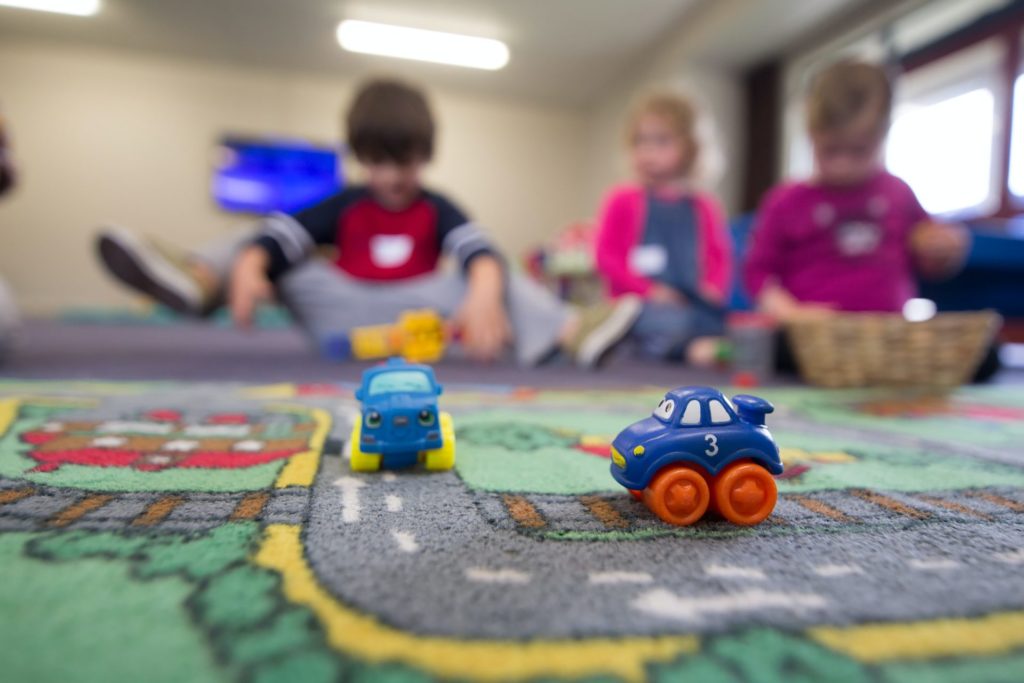The shortage of affordable Dutch-speaking childcare in Brussels remains very large, with the majority of the Belgian capital’s childcare centres catering to French speakers, according to reporting from Bruzz.
“The demand is twice as large as the supply,” professor Michel Vandenbroeck of UGent told Bruzz, and an acute shortage of staff in the sector is contributing to the issue, as well.
A study co-authored by Vandenbroeck found that for the estimated 50,000 Brussels children between zero and three years old, there are currently around 21,000 childcare centres, of which just under 7,000 are Dutch-speaking.
“The Dutch-language applications go through the Childcare Centre. There, we see that only one in two applications can be honoured,” said Vandenbroeck, “so it is almost impossible for parents who choose to stay at home a bit longer after the birth of their child to find a place.”
Parents who are unable to secure childcare must then seek solutions through family or by taking breaks in their careers, which isn’t always possible for people with precarious jobs, who may be forced to turn down job offers or cut short their education.
Legislation is planned to add 258 daycare centres, subsidised by Flanders, but Vandenbroeck calls this “a drop in the ocean.”
Daycare in Brussels is more expensive than it is in Flanders, costing an average of €670 a month - “unaffordable for the average Brusselsian,” Vandenbroeck points out.
Related News
- Decline in Dutch-speaking day cares in Brussels
- 'Appalling': abuse in Flemish daycares often goes unsanctioned
But the number of daycare centres in Brussels whose prices are income-related, and therefore more affordable, has grown in recent years.
In 2015, 58 percent of places were considered affordable, and today that’s grown to 68 percent.
“Non-income-related childcare is becoming marginal, which is a good thing,” said Vandenbroeck.
Still, parents of Dutch-speaking children are looking at limited options.
“The fact that on the Dutch side, the number of non-income related crèches has decreased is mainly due to the fact that a series of crèches had to switch to the French language after Kind en Gezin decided to apply stricter language requirements.”
The study was commissioned by Flemish Community Commission (VGC) chairwoman Elke Van den Brandt (Groen), who thinks Flanders should invest more in Dutch-speaking daycares in Brussels.
“250 new places, while the need is above 1,000 places - that’s not enough,” Van den Brandt said.

